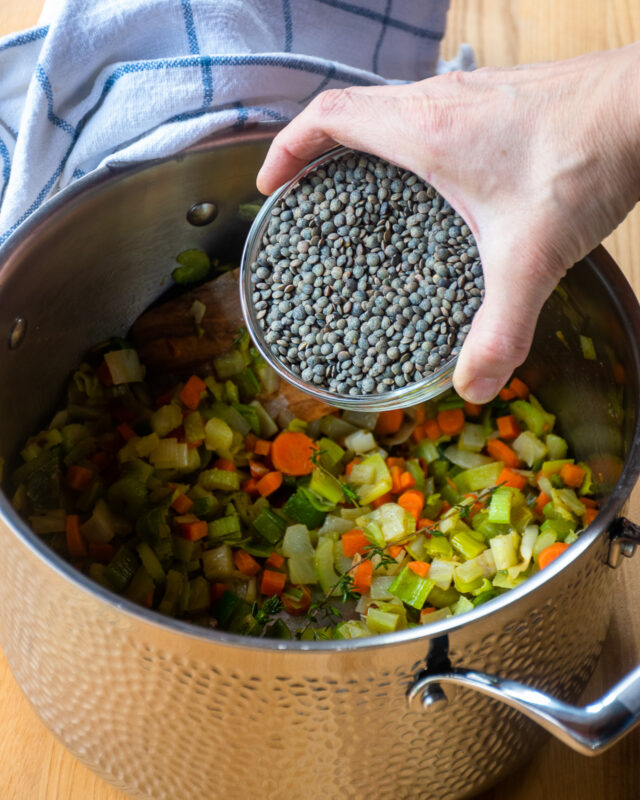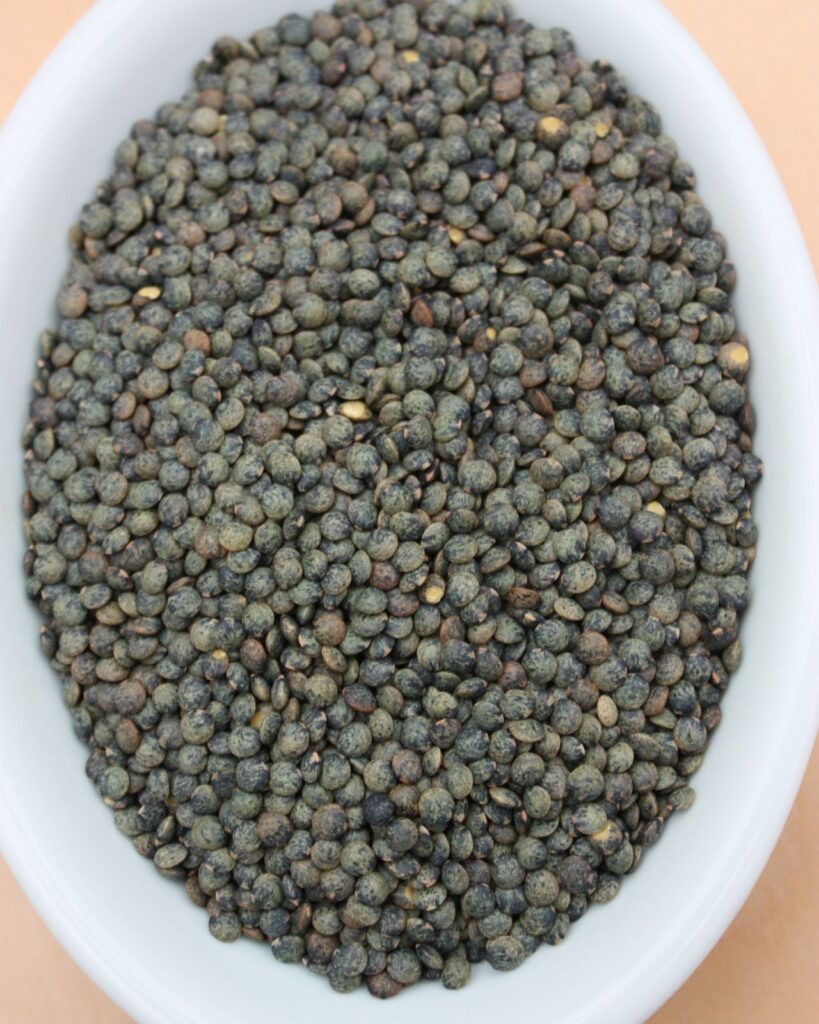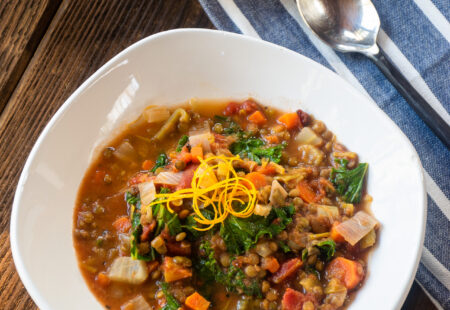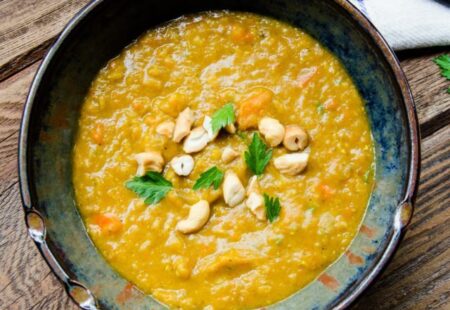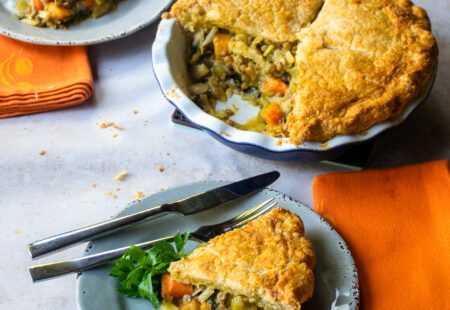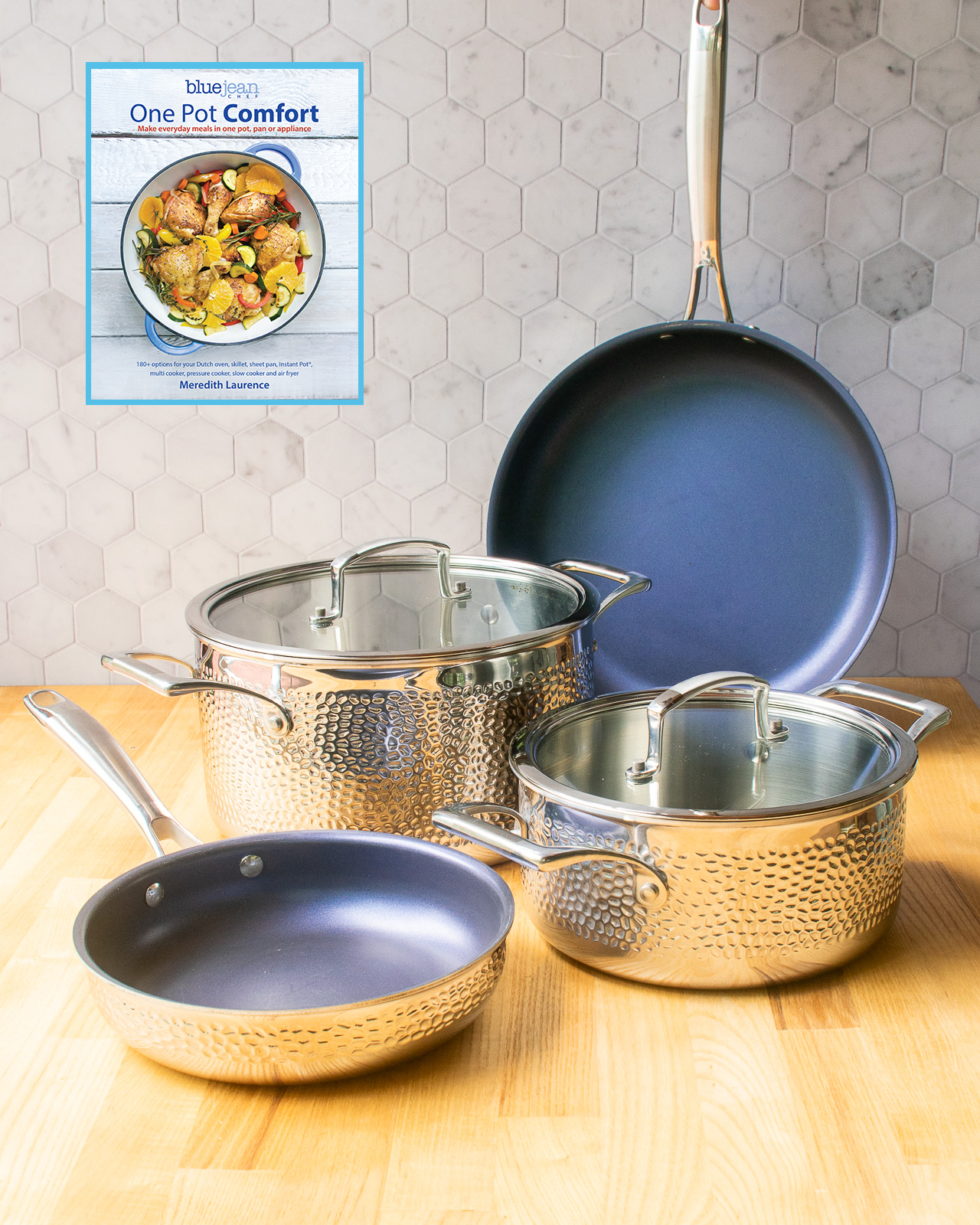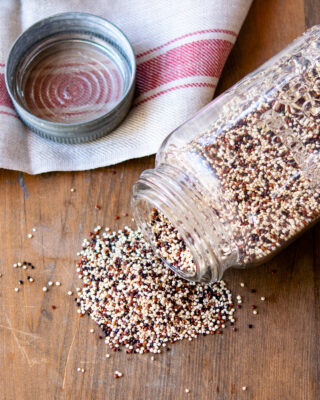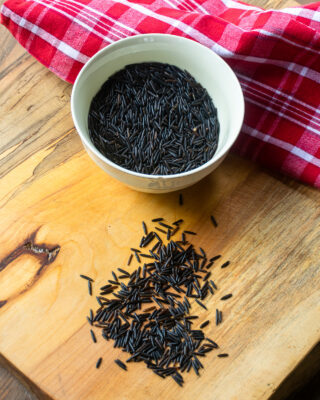What are Lentils?
Lentils are pulses – the small lens-shaped seeds of a legume plant, which is a family of plants that includes peas and beans. The leaves, stems and pods of the plant are called legumes, while the seeds inside the pods are pulses. What’s more important is that lentils are a delicious source of protein and fiber that are very easy to prepare as you are about to find out. On top of being easy to cook and nutritious, lentils are inexpensive, low calorie and totally satisfying – often standing in for ground beef in a recipe. There is every good reason you should learn to cook lentils.
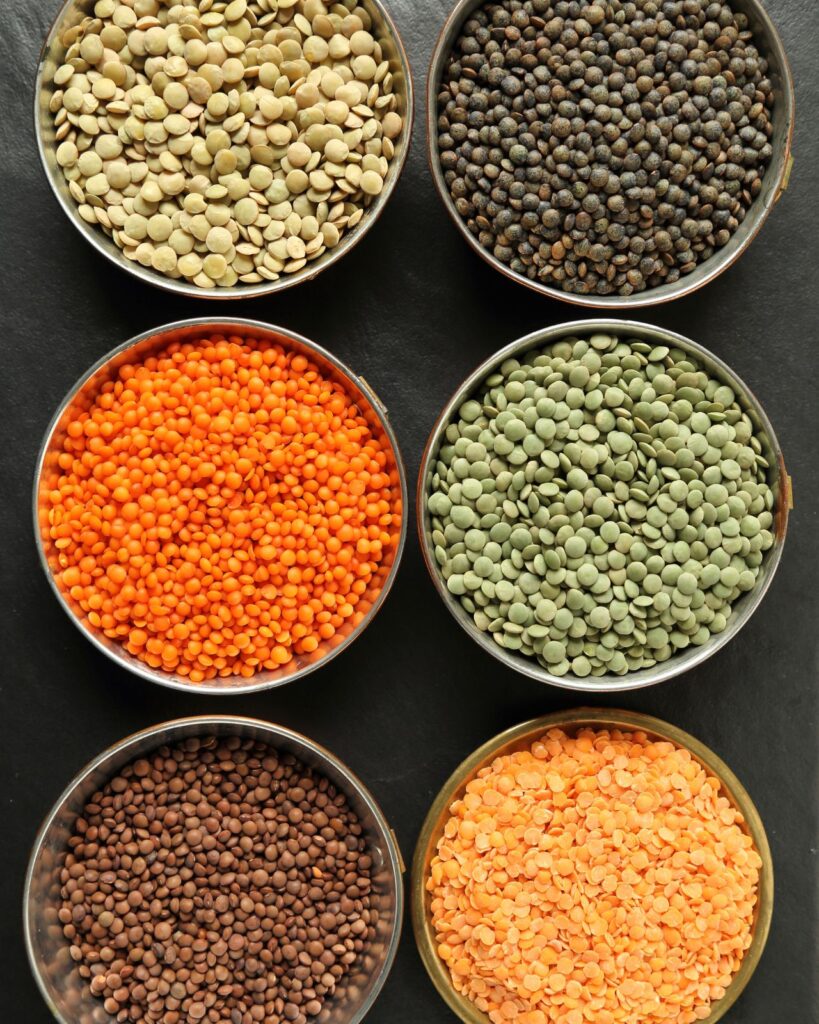
Types of Lentils
There are a variety of different lentils and they do differ when cooked. Here are some of the most common types:
- Brown Lentils. These are the most common lentil and often what you’ll find in a bag that just describes the contents as “Lentils”. They have an earthy flavor and can be used in almost any recipe.
- Green Lentils. These lentils come in various shades of green and are quite similar to brown lentils. They have a little more flavor than brown lentils.
- Puy Lentils. Puy lentils are grown in Le Puy, France dark blue-green with black specks and are more expensive than other lentils. They hold their shape nicely when cooked and have a slightly peppery flavor. They are a good option for lentil salads.
- Red Lentils. Red lentils are sold split and as a result break down more in cooking. This makes them a good option when you want something thickened or just softer in texture. They are ever so slightly sweet and turn yellow when they are cooked. These lentils are often used in dal recipes.
- Yellow Lentils. These lentils are very similar to red lentils, but not as flavorful which makes them a good base for other flavors.
- Black or Beluga Lentils. These tiny dark black lentils resemble caviar when cooked with a shiny appearance. They also keep their shape nicely and are very well suited to salads.
All these lentils can be cooked the same way, but could take slightly different times to cook. There is always a range of cooking times when cooking lentils because the age of the lentil can cause it to take a little longer in the pot, and depending on what you are making, you may want the lentils firmer or softer. The best strategy is to check and taste the lentils as they cook and stop when they have reached the desired tenderness.
Cooking Time for Lentils
| Brown Lentils | 20 – 25 minutes |
| Green Lentils | 18 – 25 minutes |
| Puy Lentils | 25 – 30 minutes |
| Red Lentils | 10 – 15 minutes |
| Yellow Lentils | 10 – 15 minutes |
| Black Lentils | 25 – 30 minutes |
Do I have to Soak Lentils
Great news! No! You do not need to soak lentils. You can soak lentils if you really want to, but since they really only take 30 minutes to cook there seems very little point to shorten that cooking time. No soaking required. However, it is a good idea to rinse your lentils to check for small stones or other debris. Give them a rinse in a fine strainer and then start cooking.
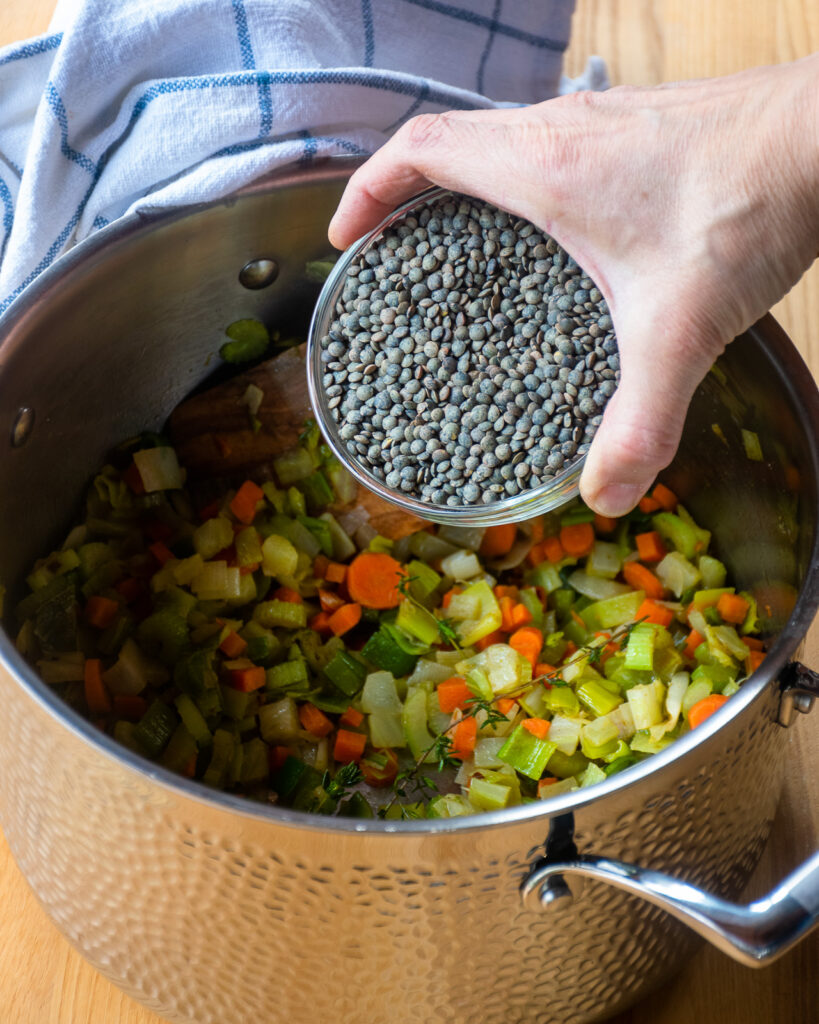
How to Cook Lentils
More good news… lentils don’t require a specific ratio of lentil:water to cook properly. Just cook your lentils in lots of water. Here’s a step by step process:
- Rinse lentils, looking for stones or other debris.
- Add lentils to a pot and cover with lots of water.
- Add any additional flavors that you would like to add.
- Bring to a boil and then lower the heat and simmer until the lentils are almost.
- Season with salt just before the lentils are tender. Continue to cook to the desired tenderness.
- Strain. Remove any other ingredients if appropriate and serve.
Flavors to Add to Lentils
You can absolutely cook lentils in plain water, but there are a few tips to making your lentils extra flavorful. First of all, season the lentils with salt at the end of cooking. Salting too early can toughen the lentil, so add salt to the water for the last 5 minutes of cooking. You can also add ingredients to the pot as the lentils cook. The following are good options for added flavor:
- Mirepoix (onion, celery, carrot)
- Bay leaf
- Fresh herbs
- Smashed garlic cloves
If you’re goal is just cooked lentils, remember to leave the onion, carrot and celery in large pieces so that they are easy to remove at the end of cooking.
Seasoning Lentils
If you are just cooking lentils to have as a side dish, try dressing with red wine vinegar when the lentils are still warm. Grind some black pepper and sprinkle some salt on top and then toss with a little olive oil and some fresh herbs.
Storing Lentils
Store dried lentils in air tight containers in your pantry. They have a long shelf life and can live happily on your shelf for up to a year or longer. Once cooked, store the cooked lentils in the refrigerator up to a week, or freeze spread out on a sheet tray and then package the frozen lentils into airtight bags and store frozen for up to 6 months.
Quick Notes:
- Lentils are pulses – the seeds of legume plants.
- How to Cook:
- Rinse lentils, looking for stones or other debris.
- Add lentils to a pot and cover with lots of water.
- Add any additional flavors that you would like to add.
- Bring to a boil and then lower the heat and simmer until the lentils are almost.
- Season with salt just before the lentils are tender. Continue to cook to the desired tenderness.
- Strain. Remove any other ingredients if appropriate and serve.
- Types of lentils and cooking times:
- Brown Lentils – 20 – 25 minutes
- Green Lentils – 18 – 25 minutes
- Puy Lentils – 25 – 30 minutes
- Red Lentils – 10 – 15 minutes
- Yellow Lentils – 10 – 15 minutes
- Black or Beluga Lentils – 25 – 30 minutes
- Adding flavor
- Add salt to liquid for last 5 minutes of cooking
- Cook in broth instead of water
- Add aromatic ingredients (onion, carrots, celery, bay leaf, fresh herbs, garlic) to the pot as they lentils cook
